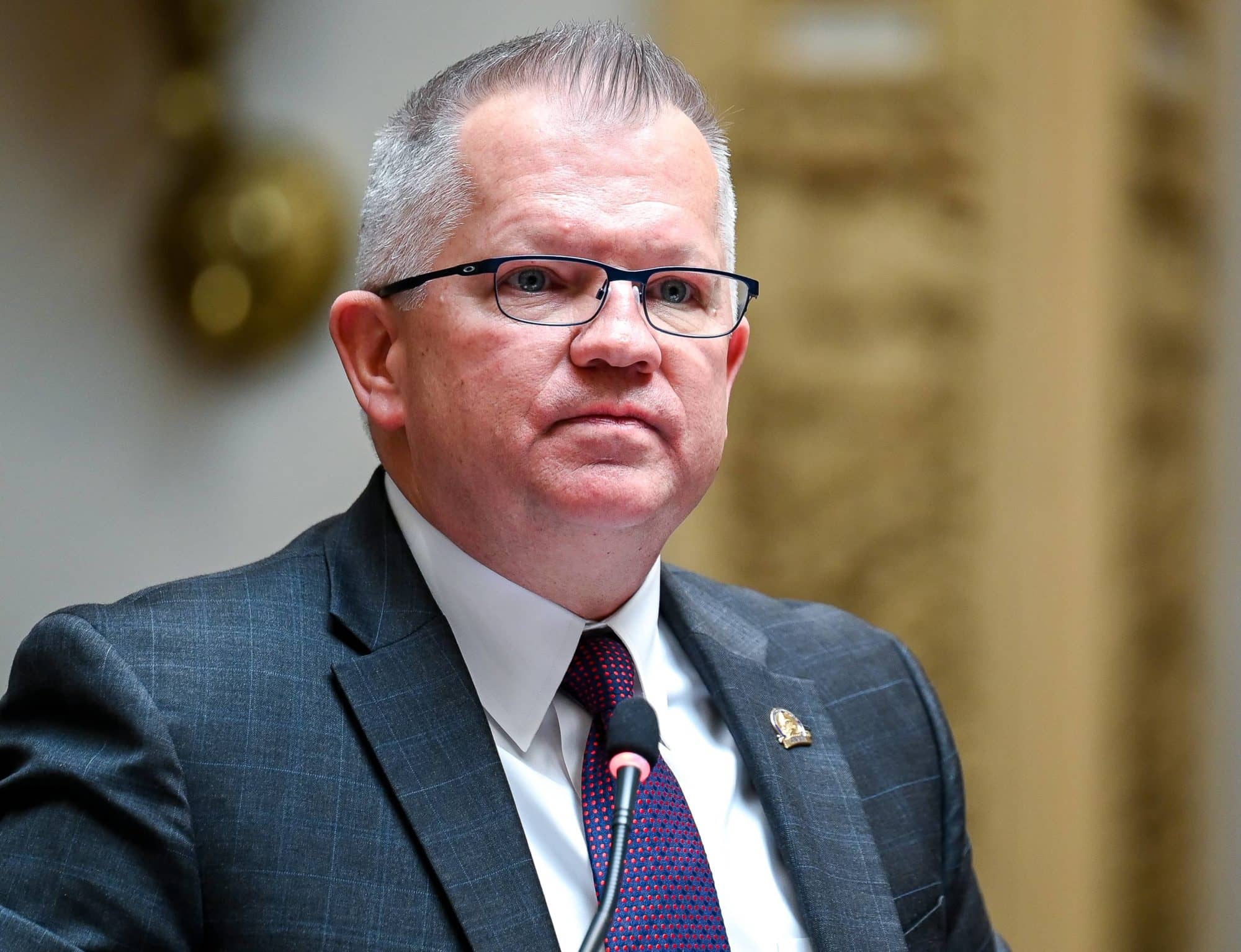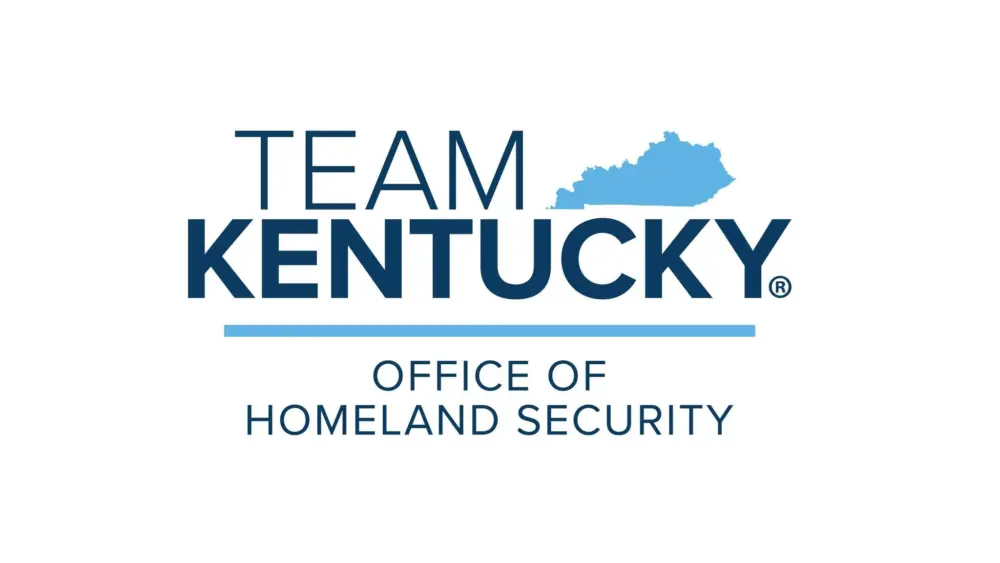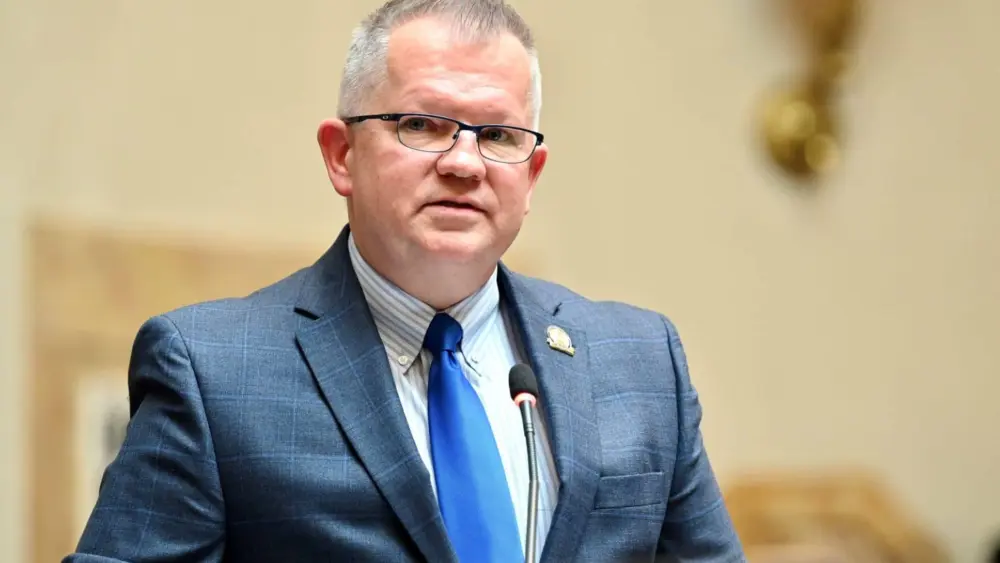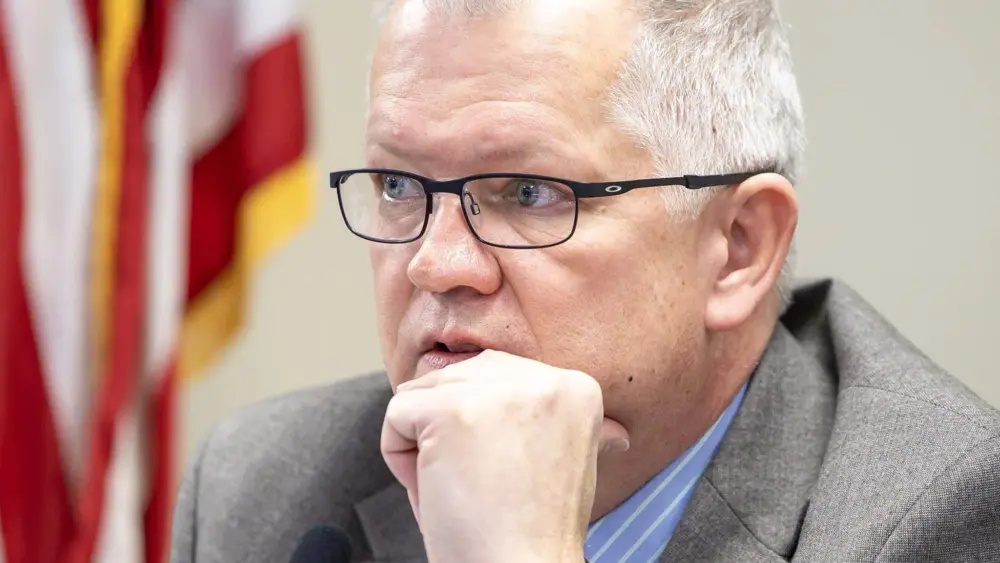 Week 8 of the 2023 Legislative Session
Week 8 of the 2023 Legislative Session
First and foremost, I want to offer my sincere condolences to the families, friends, and brothers and sisters in arms of the nine Ft. Campbell service members who perished in the helicopter crashes. Service in the U.S. Armed Forces takes bravery and sacrifice, and we can never do enough to fully appreciate the services of those who answer the call of duty. I ask you to join me in prayer for those we have lost and all who love them, including their fellow brothers and sisters in arms. Thank you to all who serve.
Lawmakers returned to Frankfort on Wednesday following the 10-day veto period, in which Governor Andy Beshear was allowed time to consider all legislation that had reached his desk. The Governor vetoed 15 bills in total but, likely given it is an election year, allowed several to go into law without his support (signature).
Several bills filed with the Kentucky Secretary of State’s office were measures the Governor had previously expressed criticism of publicly, or his past actions indicate his philosophical disapproval of, such as Senate Bill 5, establishes a process by which parents can challenge questionable sexually explicit materials in their children’s schools.
The Governor exercised his constitutional authority to veto the following bills, which were added to the list of over 70 bills and resolutions he has vetoed but have been soundly overridden by the state House and Senate chambers since his inauguration.
Senate Bill 65 made administrative regulations found deficient by a legislative committee null and void. Although various administrative regulations were found deficient over the last year, the Governor’s veto message speaks solely to the regulations related to expanding Medicaid coverage for vision, dental, and hearing services.
Members of the General Assembly urged the Beshear administration to refrain from expanding these services until the existing services provided within the Medicaid program – especially the current dental – could be sustained. Because of inadequate Medicaid reimbursement rates, Kentucky is facing a critical shortage of vision, hearing, and dental providers. Continuing to expand services when the current program is unsustainable and ineffective is an irresponsible policy initiative. The Governor’s veto message failed to mention the provision allowing individuals to continue receiving the services initiated or rendered under the expanded program.
Senate Bill 65 also clarifies that nothing prevents CHFS from increasing Medicaid reimbursement rates for dental, vision, and hearing services that existed before the expansion. Kentucky’s Medicaid program faces many difficult challenges. Look no further than the waiting list for the Michelle P. and Supports for Community Living Waiver services or the much-needed reimbursement rate adjustments for services provided by long-term care or behavioral health providers. The Governor’s reckless effort to expand these services at a time when there are many other recipients and Medicaid provider needs that are just as relevant and arguably more pressing is irresponsible. The Governor’s message lacks vision, is tone-deaf, and lacks bite in addressing the holistic needs of Kentuckians.
Senate Bill 107—ironically and contrary to the Governor’s rationale in his veto message saying the bill “politicizes the process” of hiring the commissioner of education—mitigates the Governor’s own inappropriate political influence.
Only hours after Governor Beshear was inaugurated on December 10, 2019, he dramatically politicized the Kentucky Department of Education (KDE) by completely dissolving the Kentucky Board of Education, appointing Democrats to all eleven voting-member positions, and thereby immediately paving the way for removing the state’s education chief with no just cause, then hiring current KDE Commissioner Jason Glass.
Glass, a journeyman in the education arena, had spent several years in Colorado before accepting the position of KDE commissioner. The indication is he was unsuccessful as a Jefferson County, Colorado, Public Schools superintendent.
Rather than creating “an unnecessary bureaucratic obstacle,” as asserted by Governor Beshear, Senate Bill 107 creates a necessary check and balance for what has sadly become nothing more than a political bureaucrat.
Senate Bill 150 was a measure with many provisions I agreed with, such as increasing parental awareness and engagement in their children’s health as it relates to the public school systems and preventing irreversible gender transition surgeries for those not yet to an age to consent to such a drastic life decision, but ultimately had to oppose the bill.
The bill garnered a lot of attention and was the cause of a great deal of tension and debate. My final position on the bill was very simple, and it boils down to where my heart is—and always will be—and that is with Kentucky’s children. In this case, children at risk and caught between the two sides. These children were not being heard.
In the end, I had two major issues with the bill. First, it takes away a physician’s ability (with a parent’s consent) to prescribe reversible puberty-blocking/delaying drugs to children diagnosed with gender dysphoria and who are in the midst of a mental health crisis. Secondly, it does not prevent mental health professionals from promoting conversion during mental health treatment.
Puberty-blocking/delaying drugs are commonly prescribed to kids who begin puberty at too young of an age. A delay in the onset of puberty would allow children diagnosed with gender dysphoria and in crisis time to work through their struggles and possibly prevent their suicide. I sought an independent and experienced pediatrician for advice during my research. This doctor informed me of a young girl he once treated who was suffering from gender dysphoria and threatening suicide if she had her first period. SB 150 now puts children in situations like hers at a higher risk of suicide because the option of delaying puberty is off the table.
I offered a compromise amendment (SFA 2) to HB 470 (the original and unacceptable bill addressing gender dysphoria issues), which passed on the Senate floor, but was then “laid on the clerk’s desk” through a maneuver by one of my Senate colleagues. The amendment I offered allowed for puberty-blocking/delaying drugs but did not allow cross-sex hormones, sex change surgeries or mental health professionals to promote transitioning. It also included the language to the original SB 150, which I supported.
In the end, my amendment was killed and another amendment was passed as part of SB 150, which became the final product. This product was something I simply could not support and I felt convicted to be a voice for kids who didn’t have one. Would the amendment I offered have prevented hundreds or thousands of suicides? I honestly don’t know and to me it really doesn’t matter. If it would have prevented only one, that child’s life was worth fighting for!!
I spent the majority of my time this legislative session working with others to address the crisis within the state’s Department of Juvenile Justice, and I’m proud to say we did that. I could not on one hand take away much-needed care for a population of kids struggling with mental health issues related to gender dysphoria while fighting to providing it to those who have found themselves in a state detention center… a system that is failing them.
Several additional House and Senate bills were delivered to the Governor in the final two days of the session. Unlike the bills above, the following will not qualify for a veto override. If vetoed, they will not become state law until at least after the 2023 Legislative Session.
· Senate Bill 247 would create conditions for the continuity of education services and instruction for low-income, transient students, allowing students in grades 1, 2, or 3—on free or reduced lunch—to remain in the same school when changing residence within the same school district. The bill would require the school district to provide transportation to the school from the student’s new residence but authorize the superintendent to deny the transportation request if deemed impracticable.
· House Bill 64 will extend the period that a peace officer, employed since December 1, 1998, may be separated from service before losing their certification status from 100 days to 365 days.
· House Bill 207 will allow law enforcement agencies to create their own wellness programs. Additionally, HB 207 establishes that all proceedings, opinions, and records of a wellness program are privileged and not subject to subpoena, including records confidentiality maintained in accordance with a wellness program to the list of records not subject to an open records request.
· House Bill 288 will prohibit a public school district or public charter school from entering a non-disclosure agreement relating to misconduct involving a minor or student. It will also require school districts to conduct reference checks of new applicants. Applicants must disclose if they are subject to allegations or investigations in the previous 12 months and consent to a reference check. Additionally, the bill will require all individuals employed by the school district to receive a state criminal background check every five years.
· House Bill 551 will legalize sports betting in Kentucky. I did not support this bill simply because I am fundamentally opposed to expanded gaming in our commonwealth. This is a stance I have made clear from the day I started my first campaign for the state Senate. The vision of casinos in our cities and all the associated problems is not what I want for our kids’ future, and I fear this is where we are headed.
· House Bill 553 addresses additional current-year SEEK funds for about 43 growth districts.
· House Bill 135 would provide a legal framework for the use of fully autonomous vehicles in Kentucky.
The 2023 session was a 30-day, non-budget session. Some bills were heard in legislative committees but ultimately did not make it over the finish line. Although some measures were not enacted, it is not to say they nor their advocate’s efforts are in vain. Beginning in June, we will enter the 2023 Interim period, where more in-depth policy discussions will continue in anticipation of next year’s 60-day legislative session.
I encourage you to stay engaged in the legislative process. You can find a listing of all enacted bills and those pending with the Governor by visiting legislature.ky.gov. You can find archived legislative coverage at KET.org/legislature/archives.
If you have any questions or comments about these or any other public policy issue, please call me toll-free at 502-564-8100 or Danny.Carroll@LRC.ky.gov.






